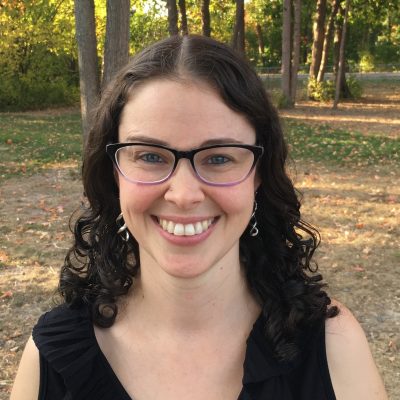Postdoc Spotlight: Manuela Ramalho

October 5, 2020
Manuela Ramalho is a postdoc in entomology from Campinas, São Paulo, Brazil. She holds degrees from Unesp Rio Claro São Paulo in Brazil, and her research at Cornell focuses on understanding the mechanisms that impact microbial communities. She is a recipient of a Postdoc Achievement Award as part of Cornell’s celebration of National Postdoc Appreciation Week 2020.
What is your area of emphasis? Why is this work important?
To understand the patterns of biodiversity, we must consider symbiotic interactions, as they can shape animal evolution. But what changes these symbioses? How do we explain all the diversity? These are questions that intrigue me and that I love to study! My research focuses on understanding the mechanisms that impact microbial communities, unraveling the role of ecology, diet, behavior, stage of development, and phylogeny of the host in these symbiotic interactions. To answer these questions, I use ants as a study model! In several ant genera symbiotic interactions with microbial communities have been shown to have profound impacts for the host. But more than that, ants have a wide distribution across the globe and an immense diversity of behaviors and ecology. These make them the perfect study model for my questions. Also, ants are fascinating!
What inspired you to choose this field of study?
As a Brazilian, I grew up in the tropics with lots of insects around. But it was at college (Unesp) in Rio Claro, SP (Brazil) that I met scientists who studied these insects and I really fell in love with the ants and the fact that there are almost only females within the colony. The truth is that the more I study ants, the more I fall in love. In addition, my doctoral supervisors are excellent researchers and people: Dr. Odair Correa Bueno (in Brazil) and Dr. Corrie S. Moreau, professor here at Cornell. They are my source of inspiration for life!
What does receiving a Postdoc Achievement Award mean to you?
Spreading science and teaching science is one of my biggest goals as a scientist. Winning this award at an excellent university like Cornell is a great honor for me, which shows how my work is valued here. I am very grateful.
What hobbies or activities do you enjoy in your spare time?
I love to cook and host parties with friends (before the pandemic). In my free time, I also love to go hiking and enjoy the nature of Ithaca with my husband, our little girl, and our wiener dog.
In addition to focusing on studying the microbiome of ants, I also advocate for a more diverse and inclusive scientific community. Quality science is done with a diverse group of scientists, with different backgrounds. Being an ally of women in science, parents in science, groups that seek inclusion in science and scientific outreach are other passions that I am most proud and pleased to be part of. I believe that the world can be a better place with science, and with all that power, science should be for EVERYONE!
Why did you choose Cornell?
I came to Cornell because of my fantastic supervisor and one of the best researchers in our field, Dr. Corrie S. Moreau. But I also fell in love with Ithaca and the community here. Here I had the opportunity to meet wonderful people from diverse backgrounds and cultures that make my life here at Cornell even more special.
What is next for you?
I want to continue to do quality science and inspire next generations of scientists, especially for women and other minorities.
Do you have any advice for current graduate students?
Plenty! But the main advice is that you have to take care of yourself. Going through graduate school and learning all these new skills is challenging and can be very stressful in itself. Therefore, choosing a good mentor/team that supports and values you are essential for you to be able to advance your career in a mentally healthy and fun way!
